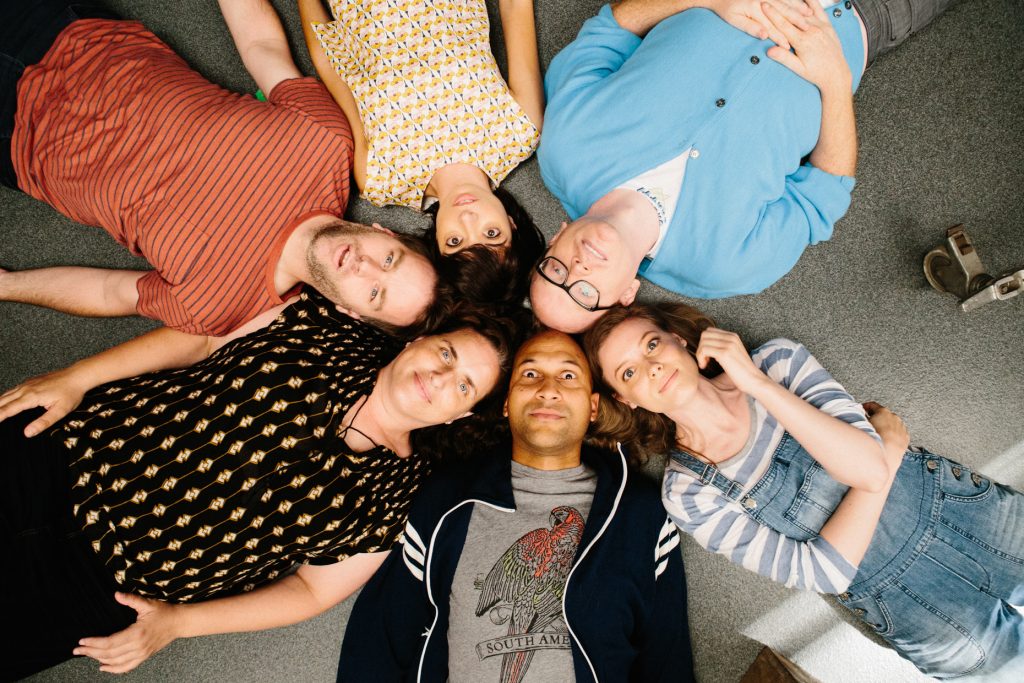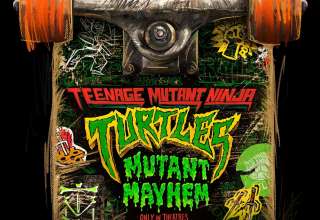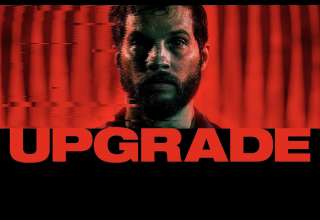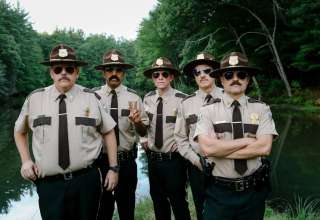Don’t Think Twice is an odd movie these days that tells a story about the different ways people sometimes deal with failure. Because of the new direction so many movie studios have gone in, finding things like this is difficult as a moviegoer, but it’s even more difficult to get something like this made as a filmmaker. I was able to speak about that with comedians Mike Birbiglia and Chris Gethard when they stopped by to talk about their latest project which focuses on things pertaining to hopes, dreams, failure and redemption in the world of comedy.
Cinematic Essential: What was going on in your life that made you think this was the right time to do this?
Mike Birbiglia: It’s so funny, after I directed Sleepwalk With Me, I was taking inventory of how I directed my first feature when I really didn’t know how to direct. I realized that it was all from my improv training. These ideas of collaboration, yes-anding listening more than you’re speaking, and it’s all about the group. And making a movie, it’s this weird endeavor where you’re hiring a hundred people. And if there’s any weak link in the crew, you feel it in the movie. So I’m like “How the hell did I even deliver this movie Sleepwalk With Me?” And it’s all improv. It’s like faking it until you make it. It’s listening, collaborating, yes-anding. So, I started doing more improv again at UCB Theater, which is where I had done improv when I started in New York City. That’s where I met Chris (Gerthard) years ago. So Chris and I and Tami (Sagher) – who plays Lindsey – were in an improv show together every Wednesday.
CE: When exactly did you come to believe that the world of improv would make a good movie?
Birbiglia: My wife made this observation one night when she came to the show, because some of our guests were like Ellie Kemper, Adie Bryant and other people. My wife goes “It’s funny that the principles of improv is that everyone’s equal.” Some of these guys are movie stars, some of them are on SNL (Saturday Night Live) and some of them live on air mattresses in Queens. And I thought not only is that a great point, but it’s a movie. I was like there should be a movie about how life isn’t fair. I wrote this thing on my wall that’s like “Art is socialism, but life is capitalism. No one says it in the movie, because it’s too “on the nose,” but it’s a guiding principle of the movie. The idea that it’s this topic friendship that exist in your 20’s where you’re all going to get the same dreams. That just doesn’t happen. And when it doesn’t happen, then what? That’s what the movie’s about.
CE: Would you say that the kind of resentment seen in Don’t Think Twice has more to do with wealth or something else?
Birbiglia: It’s not as much about wealth as it is about how resentful we all get when people get the thing we want. It’s a great American phenomenon. It’s like “How come my neighbor has an in-ground pool and I have an above ground pool. How come this person got a promotion. How come this person’s the director of the ad agency and I’m just a copywriter.”
CE: Do you see yourself as having some kinds of resentment?
Birbiglia: I definitely have resentment. That’s what the whole f*cking movie is about.
CE: That’s hard to admit for a lot of people.
Birbiglia: Yeah, a lot of people don’t want to admit that. I think that’s what the best movies are about. They’re about the things that we’re uncomfortable talking about. One of the reasons I’m really proud of this movie is that studios sure as hell aren’t making this movie. You go to studios and you’re like “Well, I have this movie and it’s about failure and how failure can be redemptive.” And they’re like “Uh, we’re not going to do that. We’re looking for something else.” Most Hollywood movies are about success. The truth is all of us in the movie theater, we’re never going to have the kind of success that those people have. So, I thought that was a worthwhile movie to make. A model for this movie is Broadcast News. I love original James L. Brooks films where it’s like the end of Broadcast News is none of them work together and they’re never going to be friends again. They’re going to stay in touch, but it’s not the quintessential happy ending. This movies like Hannah and Her Sisters, Broadcast News and Terms of Endearment and Big Chill, and I don’t think studios are making those movies anymore. It’s become incumbent on independent filmmakers to make the movies studios won’t make. One of the reasons why I went “door to door” with this is because I just wanted it to get made. No one’s going to get rich off of it. I just want people to go to this movie so that studios will see that movies like this can make money because they’re just relatable human stories about friends. No one has to be wearing a costume or being a superhero.
CE: What’s your motivation as far as being an entertainer and making films?
Birbiglia: I have no aspiration for stardom. I hope to someday make great movies that people watch 30-40 years from now. I don’t think I’ve done it yet. I hope to. I hope people come to this one, so I can make the next one even better. Hope people come to the forth one and the fifth one and the sixth one. I’m trying to make ten movies in my life and retire. And I’m hoping in that body of work, I make something that has a lasting affect. It affects people like those movies that I mentioned affected me.
CE: I know failure can sting, but it can also lead to success in other ways. Have you experienced that before?
Birbiglia: I did a sitcom pilot in 2008. It was what you think was a dream for comedians. It was about my life, it didn’t get picked up for air. At the time, I was crushed. In retrospect, it’s the biggest dodged bullet of my life. I was ripped free from the system and was able to direct to feature films and makes three one person shows off Broadway in comedy specials. Gethard’s the same way, he had a talk show – Chris Gerthard Show rejected from all these networks, so he took it to public access in New York City. It became a cult phenomenon, and networks came to him and he ended up with this show now on Fusion that’s one of the most talked about talk shows on TV. I think we’re living in an era where the gatekeepers are no longer who we should be kneeling to. The studios and networks, we have an opportunities to make things with the technology the way it is. They made Tangerine with an iPhone. That almost got nominated for an Oscar.
CE: Did you write this with this cast in mind?
Birbiglia: We’ve done these readings at my house and Chris and Tammy always read those parts. I always had to say to them “Guys, I really want you to play these parts, but if we get financing and they say no, it might be Claire Danes and Jon Cryer.” That’s the way it was, but I was lucky enough to hookup with Cold Iron (Pictures) and The Film Arcade. They really said “We want you to run with your artistic vision.” I mean, Chris pointed out that it’s the exact theme of the movie.
Gethard: Yeah, to be in that position and then it’s like this is a movie about being bitter about another who got a role. It definitely took on some kind of weird meta, real life aspects right out of the gate. It made it easier to lock into those feelings as an actor when it was so present in the actual process of getting to the point of being hired.
CE: How have you dealt with the feelings of resentment?
Birbiglia: I feel like the movie is a meditation on my own jealousy and resentment toward people who’ve gotten more things than me or whatever. I just turned 38 years-old and I feel like my 20’s were riddled with the kind of jealousy where I feel like my 30’s are where I came to grips with that. I don’t think I’ll ever fully escape it. I don’t think any of us do. We all face some jealousy.
Gethard: I just keep learning over and over again in my life and career that anytime I prioritize things based on ego or needing validation, it never ends well. It either it doesn’t work out or I get it and realize that those were hollow reasons to want this thing and it didn’t solve any problems. To me, I just kind of learned that the more I can remove my own ego from the process, the happier I can become and that the happiness isn’t contingent on success necessarily. They’re separate things. I thin American culture in particular is achievement driven and status driven. And I think it’s a very stressful way to live that burns me out fast. I just learned that I have to remove status and ego and comparing myself to another person’s achievements, because anytime I chase that, it doesn’t work out well.
Birbiglia: I also think that whenever I’m feeling jealous of someone, I try to think “Would I trade my life for their life?” And also it’s no. And if that’s the case, you have no right to be jealous. You can’t cherrypick what you want from someone else’s life. It’s not fair.
CE: Do you feel like Gillian Jacobs’ character is a good example of managed expectations?
Gethard: That character was so fascinating to me, because the character Miles (played by Birbiglia) has this gross level of motivation and this gross level of “Why not me?,” Gillian is a more positive and more hopeful character, but as a real working actor and a real improviser, there’s almost as much trouble with her naiveté. This idea of “Why can’t I do this thing forever?” I’ve seen that in real life as well and I’ve felt that as well. And there’s this like “Well, are you underestimating yourself? Are you selling yourself short? Are you just being naive thinking that you can do this?” The end of the day, I’ve been doing it for 16 years and I don’t know anybody who pays their rent doing improv comedy. It’s not a factor. It’s a culture where people perform for free. So there’s equally troublesome aspects to the character. I think there are these very distressing notions of “Are you just hiding out in this safe world?”
Birbiglia: Is she self-sabotaging? We know a lot of self-saboteurs.
Gethard: And the improv world is a very warm world where artists support each other, but at a certain point, you have to wonder if that’s real life. Is staying in this cocoon where it’s so positive all the time and so relentlessly geared toward support the real world? I don’t think that’s the real world in anybody’s respect that you get constant unending support. I would say that Miles is the most troublesome character, and I would say that Gillian’s character is probably the second most distressing character.

























